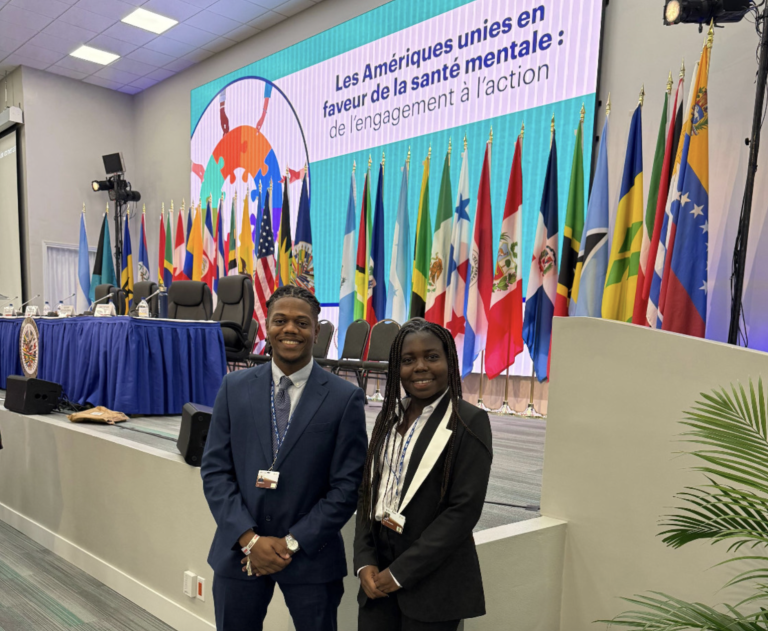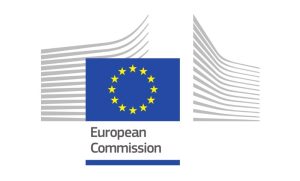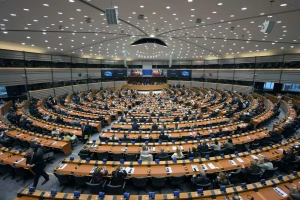As regular participants in the meetings of the Organization of American States (OAS), the World Youth Alliance (WYA) values the opportunity to bring youth perspectives into regional decision-making spaces. We are honored to continue training WYA fellows in the matters of international law and advocacy, to ensure they are equipped to advocate for human dignity and human rights.
The 55th General Assembly of the OAS was presented as a space of shared dialogue; an opportunity to include civil society in shaping hemispheric policies. Yet for many youth delegates representing civil society organizations, the experience did not match the rhetoric. From restricted access to vague processes, the OAS commitment to openness felt more symbolic than substantial.
“Country representatives touted the Assembly as a commitment to civil society involvement, but the reality was an implicit limitation of civil society contributions,” said Teddy-Ann Quamina, one of WYA’s official delegates. Participation was limited and often functionally irrelevant to any decision-making.
Only a small number of civil society organizations were granted access to the General Council via a special pass, with no transparent explanation of how or why they were selected. Most other civil society actors, including WYA, were confined to observing the plenary sessions. And even in these, civil society voices were permitted to speak only once, and only through pre-organized coalitions.
This structure not only silenced dissenting perspectives within coalitions, but also made it logistically impossible to convey the distinct concerns of organizations in the time allotted.
As Darion Cupid, another WYA official delegate, noted, “Civil society was given a more performative role than a functional role… we were just meant to be observers.” Though WYA came prepared to contribute meaningfully, including in committee discussions, civil society was not granted access to any of the working negotiation rooms or sessions where resolutions were debated and finalized. Many events were by invitation only through the secretariat and last-minute access appeared to be based on personal connections rather than organizational merit.
The result was not diversity and constructive dialogue, but a false illusion of such.
Civil society representatives were repeatedly acknowledged in speeches as “key partners,” yet structurally excluded from every meaningful decision-making space. This disconnect between rhetoric and reality at the OAS points to a deeper issue: the instrumentalization of civil society for appearance over substance.
Truly open dialogue requires transparency, access, and combined effort and discussion, even when civil society views challenge the dominant narrative. Should the OAS be serious about its aim to actively engage with civil society organizations to foster a more “democratic, secure, and inclusive hemisphere,” the first step is to restore trust through transparency. WYA will continue to work to ensure fairness in civil society participation. This includes advocating for clear and published criteria for access to all official sessions, including negotiation rooms, and equal opportunity to allow individual organizations, not only coalitions, to expand speaking opportunities and present unique contributions. We will also work to make informal events surrounding the Assembly more accessible and transparently organized for all accredited participants.
As young people invested in the future of our region, we as members of WYA, continue to advocate for policies rooted in human dignity and authentic participation, despite these setbacks. We are proud of our trained advocacy fellows who persisted in their effort towards open dialogue at the OAS and made valuable connections with several key stakeholders who voiced similar concerns with regards to the issue of transparency and exclusion. We hope future OAS Assemblies move beyond the performative, and toward a genuine partnership between states and civil society. Only then will the promise of the OAS, as the hemisphere’s principal multilateral forum, be fully realized.




